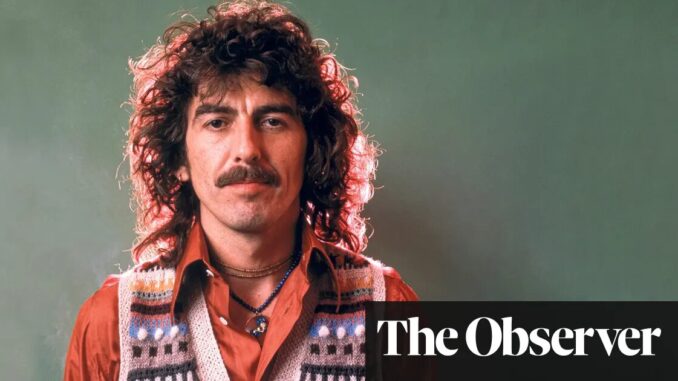
George Harrison, The Beatles, and my Belvoir classmates
When former Beatle George Harrison passed away last week, it brought back memories of my childhood at Belvoir Elementary School in the 1960s, the era of the Beatles’ reign.

In actuality, The Beatles were everything. I wondered what young people my age used to think of the Beatles.
The Beatles were more than just “cool” or even great for the children in my mostly Jewish school. In a way, they were also Jewish, whereas the Rolling Stones were definitely goofy. The Beatles were elegantly clever and witty. Among us Jewish kids, these were highly valued attributes. And we took the Fab Four and made them our own.
Every member of the Beatles had a unique personality. Every member of the Fab Four had an ardent fan base; they were all someone’s favorite Beatle. Back then, we addressed them by their first names. George Harrison, Ringo Starr, John Lennon, and Paul McCartney were always Paul, John, Ringo, and George. They served as benchmarks for the evolution of our identities.
Beatle Paul was the most well-liked. He was the most endearing; he had the biggest smile. When he sang, he gave the audience a wink. Paul seemed to be well-liked by the typical kids—those who effortlessly fit in. The children who trailed after Paul were gleefully hopeful.
John was the outsider, the rebel with a sharp tongue. There was a general distaste among the John kids for rules that seemed arbitrary. When I was a
The drummer, Ringo, had a fan base that frequently bewildered other young people, prompting them to inquire, “Why is Ringo your favorite?” To put it plainly, he appeared to be somewhat stupid. His best quality was his amiability. It appeared as though Ringo was a dependable friend at all times. The children who named Ringo as their favorite weren’t the most popular or the best students. However, they were cordial. You could also have anything in the world from the Ringo kids. Abundant to an extreme. It goes without saying that the Ringo kids were easily exploitable.
Next was George, who drew perhaps the most inquisitive audience. It wasn’t just George who was quickly dubbed the “quiet” Beatle. Children of the 1960s believed George to be a genuine thinker and a subtly passionate artist. Whenever someone else laughed or joked, George appeared to take a step back and pay close attention. Children became aware of this.
In general, the children who followed George were more intelligent than the others. In disciplines like science and math, they performed well. Still, they weren’t ostentatious. However, some of the George children came across as stubborn, aloof, and uninterested. Sometimes this got on the nerves of other kids, especially the ones who worshipped Paul.
The George children avoided trouble, but not because they were obedient to authority figures. All the George children did was follow the rules because it made sense. It’s possible that they were the only ones who enjoyed reading novels and watching the evening news.
What became of all the George children, I wonder? Did things work out the way they seemed to at the time? An adult George person comes to mind as an engineer, a physician, or a college professor.
A person who is 70 years old or younger may be perplexed by the commotion surrounding Harrison’s passing. The only way to truly comprehend the significance of a person such as Harrison is to look back to our early years, when we gradually come to understand the kind of person we might want to be. George Harrison was that kind of person to a lot of people.

Leave a Reply